“If You Are Not Searchable on Google, You Do Not Exist”
For some of us, this saying sounds familiar. In fact, CapGemini quoted this back in the 2010 article titled, “If You Are Not in Google You Don’t Exist”. While ensuring you are not searchable on the search engine could protect your privacy, you are not doing a good job at ensuring people have the opportunity to get to know you. It could also lead to people assuming you have something to hide.
The Nagaoka Review team had a nice chat with Mr. Chee-Seng Lai, a Writer, Trainer, Thought Leadership Coach and MIA’s 70 Rising LinkedIn Personalities 2020 to talk about the importance of creating personal branding in the digital age, especially for prospective employees such as students getting ready to enter the working world.
NR: Nagaoka Review
CS: Chee-Seng Lai

Having a Digital Presence
NR: What does “Digital Presence” mean?
CS: Many people misunderstand that “digital presence” means having a professional presence online or being some kind of social media influencer. But it is not. If we use anything on the internet, we will have digital presence.
Using social media such as Facebook, Instagram, LinkedIn, and even Google Maps is leaving a trail of activities that can be easily tracked online by anyone searching you. Online platforms like Facebook, Google and many other websites are constantly tracking your activities in order to send ads your way. In Malaysia, we use a contact tracing application called MySejahtera. It tracks wherever we Malaysians go, and this is providing an incredible amount of data. All this data can be used to analyse your behaviour and preferences.
My point is, whether you realise it or not, you already have a digital presence. Your Facebook, LinkedIn, Instagram posts and more – these are your digital presence.

NR: What is the use of having digital presence?
CS: At this age, we all have social media account(s). We are all “google-able”, in a way. People can find you on various platforms. Even if you set all your social media settings to private, there is no guarantee that what you post will not be seen by those outside your network. The question now is – what is your digital presence like? What image are you presenting to people and is it helpful to your life and career goals?
If you are a prospective employee, many employers no longer just look at your application letter and CV. When sending applications to job opportunities, one could create an amazing CV and cover letter. But just as employees want to work in a company that is the right fit, the employers want the same too. It is quite easy for employers do an online search of prospective hires to learn more about their personality, likes and dislikes, values, and more. If their social media content does not tally with their CV, that is a potential red flag.
So, it is very important to be AWARE of what image we are building up online, as well as to CURATE our digital presence.
Digital Persona Curation
NR: When you mention “curating” one’s digital presence, do you mean creating an image of oneself?
CS: From my perspective, it’s not just about creating an image. If you are building up an image that is not authentically you, your real personality will reveal itself eventually as people interact with you at work. That may or may not be helpful to you or those around you when they experience the real you. Your personal brand is what others think of you, not what you say about yourself.
I know people who project an image of wealth and success on social media. For people who know them, they know that the BMWs and Mercedes-Benzes in the photos are not theirs, neither are the fancy houses. Their real life could be very different from what they portray. How are they going to completely hide their real life from people to maintain their online persona? I know of people who do these, and I think it can do much damage to the relationships in their real life and even to their own mental health. Who can maintain a façade all the time? There has to be a breaking point at some time.
Besides, why do you need to present an “image of success” to the world? Is being photographed in an expensive car any indication that I can deliver real value to another person? It doesn’t make sense if you think about it! Besides, I think if someone is attracted to you professionally based mainly on this kind of image, it will likely turn out to be a shallow relationship. Building a professional relationship based on something so shallow cannot be sustainable.
So I think it is more important for you to be authentically you and present the best version of your real self to the world. This is the best way to attract the people who would really resonate with you and your values. This is how you build solid professional relationships. Then when people consistently experience you for who you are, that becomes your reputation – in other words, your personal brand.
NR: What do you think about the term “Fake It Until You Make It?”
CS: I’m very against this idea of creating an “image of success” so that you will achieve success.
I used to be part of an MLM (multi-level marketing) organization and I bought into this idea. My uplines were telling me to look successful if I wanted to be successful. I spent money I couldn’t afford on clothes, things and events. I tried to act aggressively like how my uplines said I should if I wanted to succeed. I bought into the whole image building persona but deep inside I knew it was not real. I was projecting an image to show prospects that I was “making it” when in fact I was just “faking it”.
In reality, I had a lot of internal conflict trying to live this image and it was causing me to lose confidence in myself and even damaging the relationships with my family. I didn’t know how to become that image I was trying to uphold because it wasn’t me. People could sense the hesitation in me anyway and I ended up making people feel like I was shifty and dishonest. Well, the dishonesty they felt wasn’t me being dishonest with them. I was being dishonest with myself!
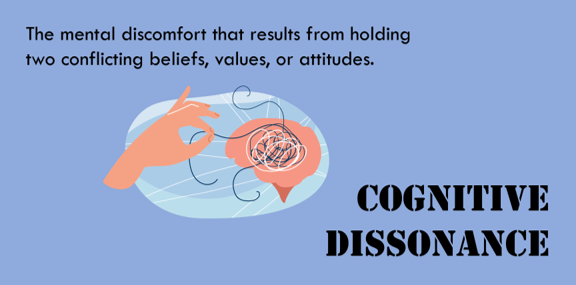
So now, I’m very transparent with people – online and in person – because I am committed to being authentic. I don’t mind sharing with people about my difficult experiences, like when I was flat broke for many years. Now, some people from overseas call me an influencer and think I am an industry leader in Malaysia. I’ve been invited to speak at regional online events. But I still don’t claim to be rich and successful. I just focus on sharing my experiences, and if someone finds value in that, that is good for me!
So “fake it til you make it” doesn’t work. It can take a toll on you because sometimes you have to go against your conscience to maintain that image. You can’t have that mental conflict indefinitely. Eventually something will happen and you will break down, and either you stress yourself or others around you. Most likely both.
So just be authentically you. Embrace yourself and grow.
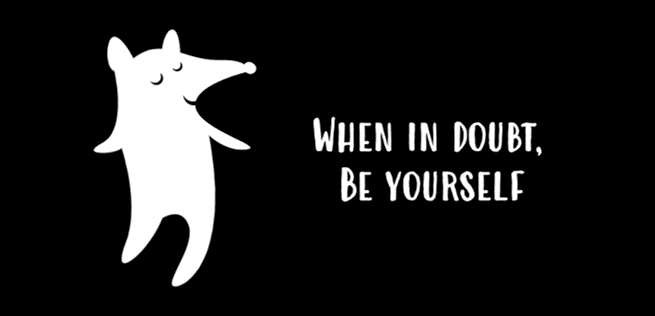
Personal Branding
NR: What does “Personal Branding” mean?
CS: In the past, “branding” meant having a corporate image or logo to help customers remember you. But the game has changed and Branding is all about the customer experience now. Take a great example – Nando’s. It is seen as a cheeky brand, and this image is deliberate. Someone planned it this way. Their branding and content has a consistent cheeky tone, but it’s not done by one person. It is a whole team of people, all of them creating a consistent brand experience to connect with a certain segment of consumers who would buy into their humor – and hopefully their products.
This is the game now – making connections with customers through brand experiences.
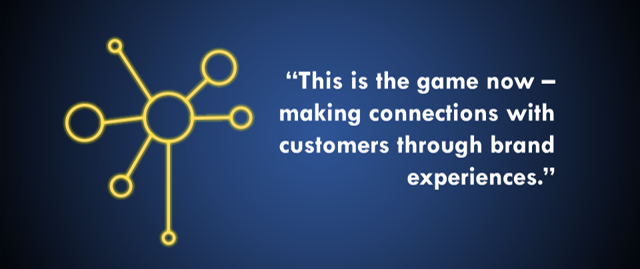
The same principle applies in personal branding. It’s not just about creating an image of yourself – displaying the clothes you wear, the cars you drive, the accessories you carry, or even the people you hang out with. Real personal branding should be more about how people experience us and connect with us as human beings. Remember, your brand is what others think of you, not what you say about yourself. Your brand will grow as you interact with more and more people, and they are able to see more of you and your work.
I think the first step to creating this authentic personal brand is through self-awareness.
NR: Tell us more about the importance of having self-awareness.
CS: To create a personal brand that is real and authentic, you really have to answer a very important question – What kind of a person am I? When we truly know ourselves and honestly acknowledge our strengths and weaknesses, then we can start to answer the next question, “What is the best version of my authentic self that I can present?” This part really depends on the audience you want to attract.
We need to be aware of how we are presenting ourselves now and see whether the audience that we want to attract appreciates that. For example, if you aspire to work in the financial industry, think from the recruiter’s point of view – “If I were an employer that is searching ME online, how will they see me?”
There is the law of attraction at work here. Whatever we portray of ourselves will attract a certain group of people who appreciate that image. If you wanted to attract your ideal employer, what authentic aspects of yourself would appeal to them? There is no point creating a great image but once you enter the interview room or the office, expectations are dashed because you turn out to be another kind of person.
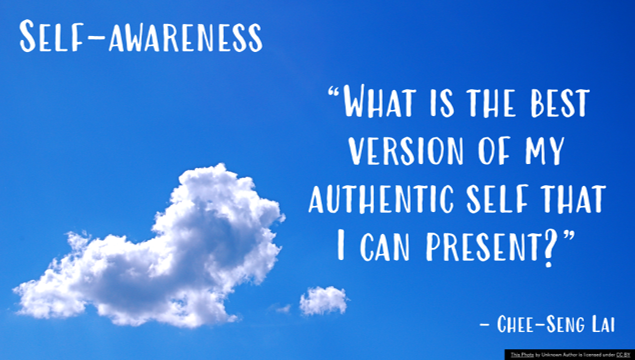
NR: How do we become more self-aware?
CS: It takes time. For introspective people like me, we ask a lot of “Why” questions. We always want to figure out why something happens and those insights can be very helpful. I also recommend getting feedback from people who are willing to be honest with you, not those who are there to agree with you all the time. Honest feedback might hurt, so you would have to be ready to listen and accept with an open mind.
NR: Is personal branding important for students?
CS: Yes. In fact, personal branding is very important for students as they prepare themselves for a transition into working life. In business, everyone is talking about finding the “right fit” these days. Just like how students aspire to work in a company that they can fit well in, companies are also searching for potential hires who fit into their company culture. Both sides are constantly evaluating each other!
When you send in your resume, there is always another human on the other side of the screen making the decision whether you are a right fit or not. If they Google you, they can quite easily see the kind of content you post and how you are engaging with others. From there, they can get an idea of your character and the values you hold. The big question in personal branding is, how will they experience you as a person?
NR: What is an important aspect of creating an authentic personal brand?
CS: Being consistently you both in real life and online is key in authenticity. Imagine a person having a great image when prospective employers Google them. But when this person steps into the interview room, it’s a totally different experience. What happens next? What would happen if the employers were interested to meet you but were ultimately unimpressed with you?
Can someone aspire to become an image they want to project? Absolutely!
Part of authentic personal branding is about growth. No one is perfect. We are all a “work-in-progress” – there’s no need to hide that. If you want to project a certain image that you aspire to, don’t project a fake image that you’re already “there”. Instead make a commitment to grow yourself. Grow your mindset, your attitude, your skills until you fill the persona you aspire to become.
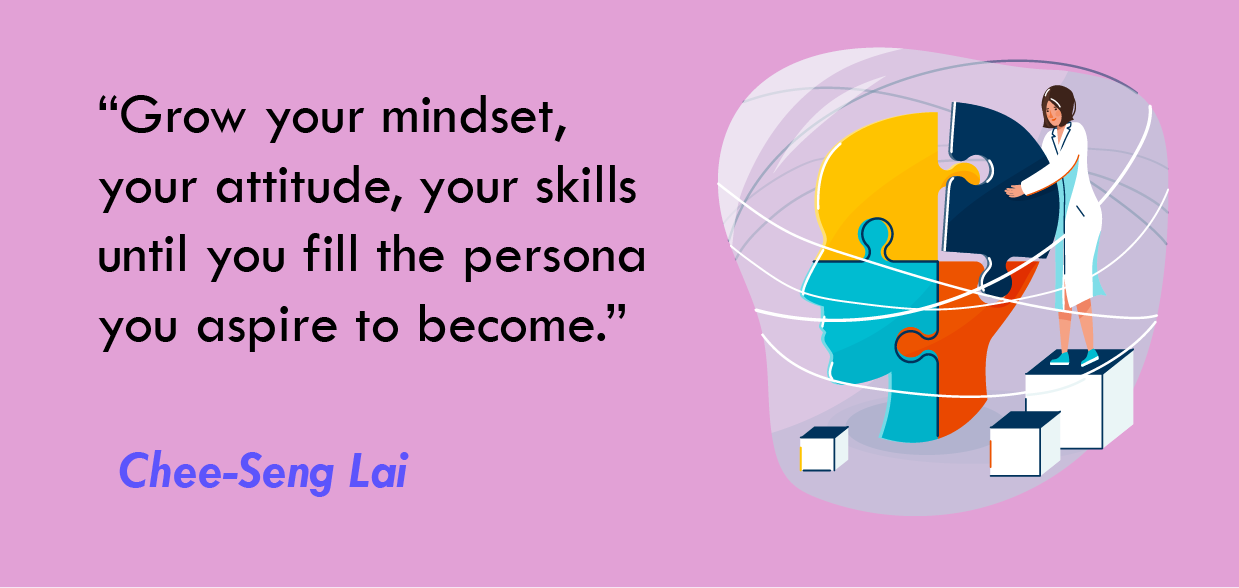
Advantages and Disadvantages of Social Media
NR: There are different social media these days. What is the difference between them?
CS: Let us look at the common ones these days. Facebook is like a giant hangout place where you have a bit of everything to catch your fancy. LinkedIn is a professional networking site. Instagram is the “picturesque site” for people to share their personal stories and lifestyles. Inspiring quotes are very popular. To me TikTok is a little ADHD, where people consume short, snappy videos and quickly move on.
It really depends on what you intend to do, as these social media have different personality. Some people could show a different side of them on different platforms depending on how they use it.
There is one thing you will have to take note. When setting your audience setting to “public” on social media, you will have to curate your content to show the best version of yourself. And because there is so much transparency, you have to be aware of what you are posting. Ensure that you are consistent. Don’t think that the people who see your professional persona on LinkedIn will not discover any inconsistent part of your character on other social media.
To make sure that doesn’t happen, it’s best to be the authentically best version of you at all times. The added benefit is that you are consciously and consistently practicing how to be your best self. Since what you practice becomes permanent, you are experiencing genuine personal growth every day.
NR: How would social media work against people?
CS: One big way to put yourself into trouble is by ranting. It is interesting to see people ranting about how they are being treated by their employer, in public (online). When a prospective employer googles a potential hire and sees that the person has a habit of ranting about their employer, what are the chances of the employer taking this person on board?
At the same time, we understand that work is not always a bed of roses. If you really must talk about something that you’re unhappy about, why not turn it into something more positive? You could turn it into a learning point, by sharing the situation then concluding with a positive lesson that you learned from it. Or maybe provide an insightful constructive comment about what the employer could have been done better. By doing so, your post brings value to your audience and it also showcases your positive thinking.
Don’t just see the problem in the challenge, look for the opportunity to learn and create value from it.
NR: The younger generation are into posting memes. What are your thoughts on memes as content?
CS: This is a very subjective question. The younger generation have a different way of expressing themselves. Posting memes would be one of the fun ways to express themselves. I like memes actually, if they are intelligent and have something relevant and important to say. So if you consistently post memes that are intelligent and funny, people would build up a certain image of you. But if you consistently post memes that have no constructive value, over time it would create a totally different image of you. What we post reflects who we are.
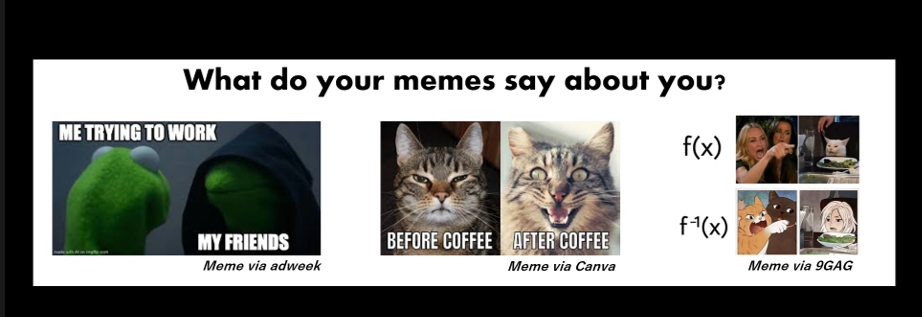
Taking The First Step
NR: How can we start doing personal branding?
CS: The first step is to really be clear – who are you now, honestly, and what do you want to achieve, exactly. Then who do you need to be as a person, what kind of mindset and skills do you need to get there? You can’t get anywhere if you don’t have a correct starting point and a definite destination.
Social media is the cheapest place to start. You can start posting content and curating the image you want to project. So evaluate the content on the social media accounts you have. Do they help create the brand you want to build?
Also keep in mind that your brand is what others think of you, not what you say about yourself. So we have to be clear about what we want others to think and say about us too. Learn how to look at ourselves from another person’s perspective. Then be the kind of person that gives them good reason to think and say that.
NR: Should an individual realize their past posts are not helpful to their personal brand, would you recommend them to delete those posts?
I don’t think that is absolutely necessary. I think it depends on a case to case basis. Definitely, in some cases, you will need to curate your content.
On the other hand, I think there is value in leaving your old embarrassing social media content there to show your growth as a person. Evolution of thought is not necessarily a bad thing. Our thinking shouldn’t be static. Rather, it demonstrates your growth as a person.
If you were to scroll through my posts on Linked from about a year ago, my posts were very different from what I post these days. That’s because I do a lot of self-reflection on what works and what doesn’t after I post. On my personal FB account, there are some posts that I’m not proud of. I’ve had to publicly acknowledge my mistake and correct my post. But I leave it there because I feel that is my integrity. I own up to what I said.
On the other hand, I also try not to fully buy into the positive feedback I get. I enjoy it, I accept it, but I also know that it’s easy to be caught up in a bubble. It’s a dangerous thing to have a certain group of people around me saying certain things and I think that is the truth everywhere else. That just creates an echo chamber and confirmation bias. You can’t grow in such a situation.
NR: What would you recommend students to do when setting up their professional account on LinkedIn?
CS: As students, the best part is this – employers understand that you are new to the working world. You do not have to present an image that says “I’m already all there.” Companies do not expect you to come in perfect. They are more interested to know if you are willing to learn and be taught. Having a growth mindset is important to them.
Some important information related to your education background would help them to understand your baseline knowledge. But other than that, employers are more interested to know if you have the personality that fits their corporate culture. Focus on showing the authentic part of yourself.
About Chee-Seng Lai
Chee-Seng is a Writer, Trainer and Thought Leadership Coach who has over 20 years experience. He has helped numerous businesses, C-suites and senior government leaders establish their market authority and thought leadership. His original thought leadership content has received praise from industry experts around the world. Chee Seng takes a 360° approach to communication, drawing from his professional experience which includes PR, publishing, digital, and advertising & marketing, as well as his life experience as an NLP Practitioner, Trainer, Teacher, and Community Leader.











